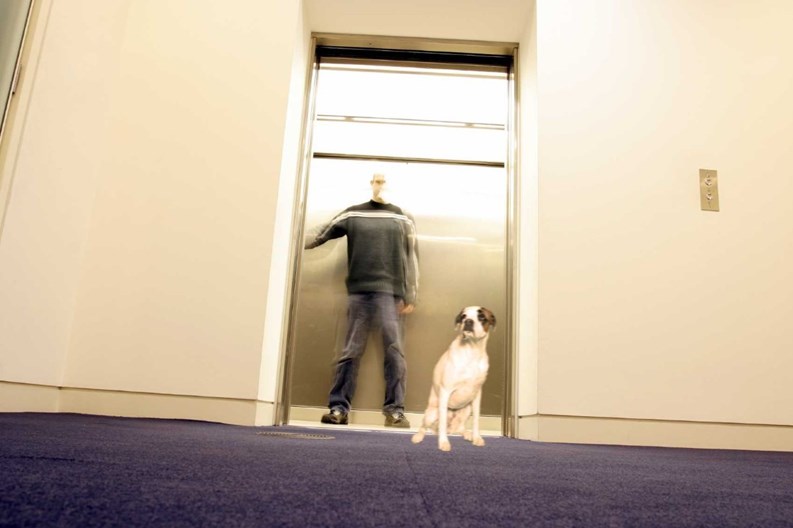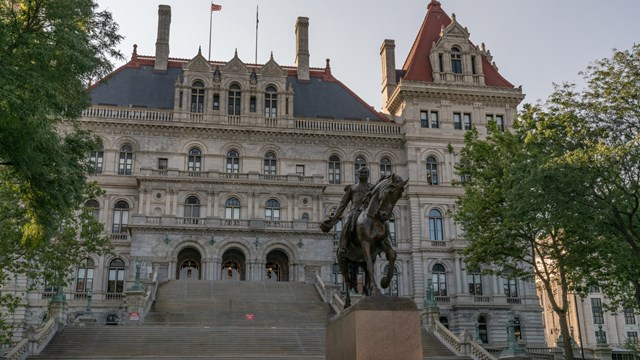The City Council is at it again with another attempt to create havoc for our co-ops. Intro 13, sponsored by Councilman Tony Avella is artfully crafted to conceal its true objective: Prohibit the right of co-ops and condos to control pet ownership in their buildings. When will council members realize that co-ops and condos are governed by boards of directors that are freely and fairly elected by those living in their communities and are empowered to set policies and house rules in order to create a meaningful quality of life for the hundreds if not thousands who live there? I know because I am the President of Glen Oaks Village, New York’s largest garden apartment co-op with 10,000 residents. Deciding whether to allow pets or not is fraught with many considerations and is best left to those living in their co-ops.
A casual reader of Intro 13 might ask, “What’s so bad about this fuzzy-sounding “Pets in Housing” bill that only tries to clarify the rights of pet owners?” Plenty! It elevates the rights of pet owners over those of a duly elected board of directors. Intro 13 dictates to all multi-family dwellings, including co-ops and condos, that:
Pets cannot be prohibited if: 1) a resident harbors such a pet and doesn’t try to hide it from management or its agents for 90 days, and 2) the owner or its agents has knowledge of this, and 3) the owner fails to commence a legal action within that time frame.
Sure, in a high-rise co-op with a doorman at a common entrance that all residents pass through, spotting an illegal pet is easy. But most affordable co-ops don’t have doormen, or are garden-apartment variety, in which nearly everyone has their own entrance and where rear areas and multiple pathways cannot be patrolled simultaneously by a limited security force. In this scenario the possibility of finding an illegal pet being harbored “openly” during this limited time frame is unlikely. And if not discovered, according to Intro 13, any “lease provision prohibiting the keeping of such household pets…shall be deemed waived”. And since co-op shareholders under the law cannot be treated differently, the bill in effect nullifies pet prohibitions for everyone!
The way this legislation defines “management knowledge” is surreal. Management or its agents are defined broadly to include the management company, the co-op’s security company and even outside contractorshired by the co-op who are on the property at least 2 times during the month the resident is harboring the pet. So if the co-op painting contractor was working nearby the home of the illegal pet owner for at least 2 days during the month and said nothing about seeing “Fido” being taken for a walk, then according to this bill, management is deemed to have had prior knowledge of the offending pet and all house rules or lease provisions prohibiting such ownership is invalidated.
It was at my initiative that Glen Oaks Village became a pet-friendly co-op many years ago. However, we did it the old-fashioned way—by a majority vote of a duly elected board of directors, not by some legislative fiat of the city council. But it doesn’t take a rocket scientist to realize that there are significant and legitimate issues associated with allowing pets in co-ops. Litigation concerns associated with the safety or even health of an allergic resident who might be forced to share a building’s hallway or single elevator with a neighbor’s dog or cat might persuade a board to keep their building pet-free. Even I, the architect of a pet-friendly Glen Oaks Village, can understand why a board of directors might choose a different path. As anyone who resides in a co-op knows, we live in close proximity to one another, and the problem of one soon becomes the problem of many. These headaches consume an enormous amount of management, security, and the board’s time, and many co-ops may simply choose to liberate themselves from this problem so that they can concentrate on more important matters. There are a whole host of reasons why a co-op may choose not to allow pets, but whatever the case, these decisions are best made by individual co-ops and not by a “one-size-fits-all” approach by the city council whose members are often single-family homeowners having little knowledge of co-op governance or co-op living.
The more insidious aspects of this bill define pets as those “pets that are not specifically outlawed by the city.” So if someone had an unconventional pet and management took no action within 90 days, then that pet owner is home-free. The law also extends the right of pet ownership beyond the life of the original pet and requires that the co-op allow replacement pets of the same species. Yes, this bill even micromanages the process down to the species of pet so if the pet owner had 2 pit bulls, then the co-op must allow 2 pit bull replacements. This effectively negates a co-op’s ability to move toward pet prohibition or even control the number, size or types of pets it allows.
This bill seems to be an outrageous grab for power and an attempt by the city council to usurp the right of freely elected boards to implement reasonable rules and regulations for their co-ops. It’s just another example of how council bureaucrats, far removed from the day-to-day operations of our co-ops make it more difficult for us to maintain high standards in our buildings. If co-op owners are displeased with a board’s performance or the rules they create, they can elect others to replace them.
Whether you favor a co-op being pet-friendly or not, the larger issue here is a co-op’s right to set standards and reasonable rules for its residents. Instead of excluding co-ops and condos from its definition of multi-family dwellings, Intro 13 substitutes a cookie-cutter approach for an elected board’s considered judgment.
Bob Friedrich is president of Glen Oaks Village, a pet-friendly garden apartment co-op in Queens. Friedrich is planning to use his knowledge and experience in co-op governance as a candidate for the City Council in the 2009 Democratic Primary.







3 Comments
Leave a Comment